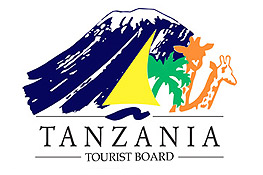Zanzibar, a stunning archipelago off the coast of Tanzania, is often referred to as the Jewel of the Indian Ocean. Known for its white sandy beaches, crystal-clear turquoise waters, and rich cultural heritage, Zanzibar is a paradise for travelers seeking both relaxation and adventure. From the historic streets of Stone Town to the vibrant marine life and lush forests, Zanzibar offers a unique blend of experiences that are hard to find elsewhere.
Getting to Zanzibar
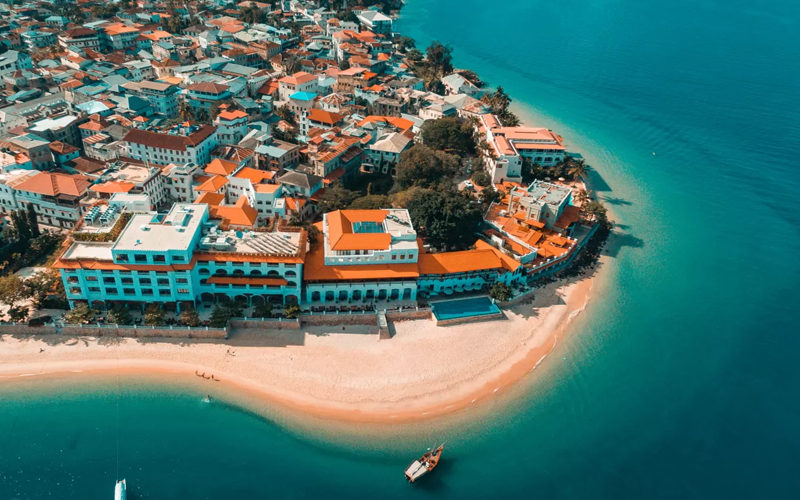
- Major Airports: Zanzibar is accessible via Abeid Amani Karume International Airport (ZNZ), which is located on Unguja Island, the largest of the Zanzibar Archipelago. The airport connects with several international destinations, making it convenient for travelers from around the globe.
- Visa Requirements: Travelers to Zanzibar generally require a visa, which can be obtained upon arrival or through the Tanzania eVisa system. It’s recommended to check the latest visa requirements from the Tanzanian embassy or consulate in your country before your trip to ensure a smooth entry process.
- Best Time to Visit: The best time to visit Zanzibar is during the dry seasons, from June to October and December to February. These periods offer pleasant weather, ideal for beach activities, diving, and exploring the island. The rainy seasons, from March to May and November, are less crowded but can still be enjoyable if you don’t mind occasional showers.
Top Attractions in Zanzibar
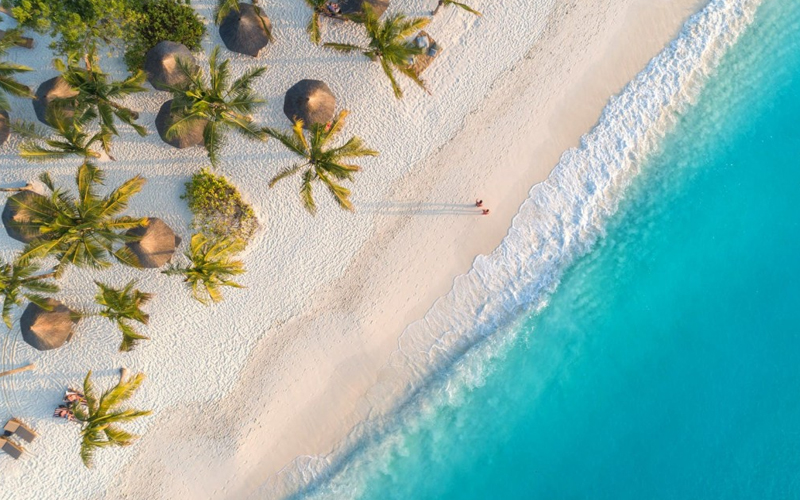
- Stone Town: A UNESCO World Heritage site, Stone Town is the historic heart of Zanzibar City. Its labyrinthine streets, bustling markets, and ornate buildings reflect a blend of African, Arab, Persian, and European influences. Key attractions include the Sultan’s Palace, the Old Fort, and the House of Wonders.
- Nungwi Beach: Located on the northern tip of Zanzibar, Nungwi Beach is famous for its pristine sands and vibrant nightlife. It’s an excellent spot for swimming, sunbathing, and enjoying water sports. The beach’s clear waters also make it a popular destination for snorkeling and diving.
- Jozani Forest: Jozani Chwaka Bay National Park is home to the rare red colobus monkey and other unique wildlife. The park’s mangrove forests and diverse ecosystems offer a peaceful retreat and an opportunity to explore Zanzibar’s natural beauty.
- Prison Island: Also known as Changuu Island, Prison Island is a short boat ride from Stone Town. Originally used as a quarantine station and prison, the island is now a popular tourist destination. Visitors can see giant tortoises, relax on the beach, and snorkel in the surrounding waters.
- Kendwa Beach: Kendwa Beach, located just south of Nungwi, is renowned for its stunning sunsets and laid-back atmosphere. The beach is less affected by tides, making it a great place for swimming all day long. It also hosts vibrant full-moon parties.
Cultural Highlights
- Swahili Culture: Zanzibar is a melting pot of cultures, with Swahili culture being the most prominent. The island’s history as a trading hub has led to a unique blend of traditions, languages, and cuisines. Visitors can experience this rich cultural heritage through local music, dance, and crafts.
- Historic Sites: In addition to Stone Town, Zanzibar is dotted with historic sites that tell the story of its diverse past. The Persian Baths, Maruhubi Palace Ruins, and Kidichi Spice Farms are just a few places where history enthusiasts can delve into the island’s storied past.
- Traditional Music and Dance: Zanzibar is known for its traditional Taarab music, which blends African, Arab, and Indian influences. Attending a live Taarab performance or a traditional dance show is a great way to immerse yourself in the local culture.
Outdoor Activities
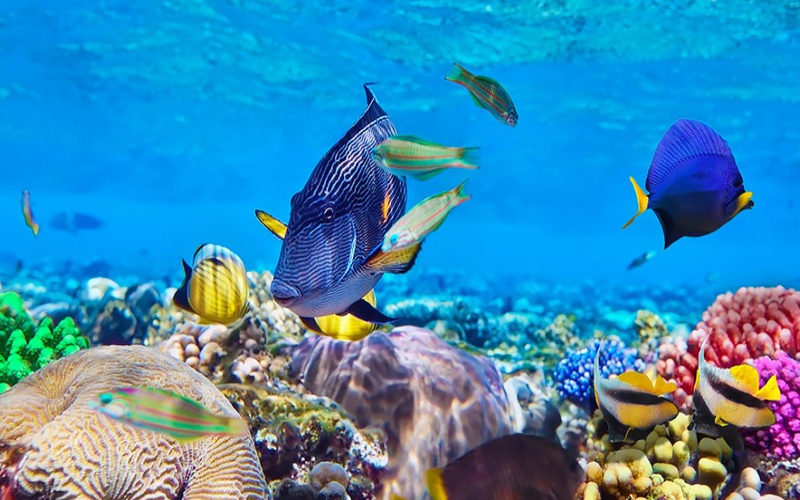
- Snorkeling and Diving: Zanzibar’s clear waters and vibrant coral reefs make it a prime destination for snorkeling and diving. Popular dive sites include Mnemba Atoll, Mafia Island, and the coral gardens around Kendwa and Nungwi.
- Spice Tours: Zanzibar is often called the “Spice Island” due to its history of spice cultivation. A spice tour offers a fascinating insight into how spices like cloves, nutmeg, and cinnamon are grown and harvested. These tours typically include opportunities to taste and buy fresh spices.
- Sailing and Dhow Cruises: Exploring the waters around Zanzibar on a traditional dhow sailboat is a must-do activity. Dhow cruises often include stops at secluded beaches, snorkeling spots, and sometimes even dolphin-watching opportunities.
- Kite Surfing: For the more adventurous, kite surfing is a popular activity in Zanzibar, especially on the eastern shores like Paje Beach. The consistent winds and shallow waters create perfect conditions for both beginners and experienced kite surfers.
Wildlife and Nature
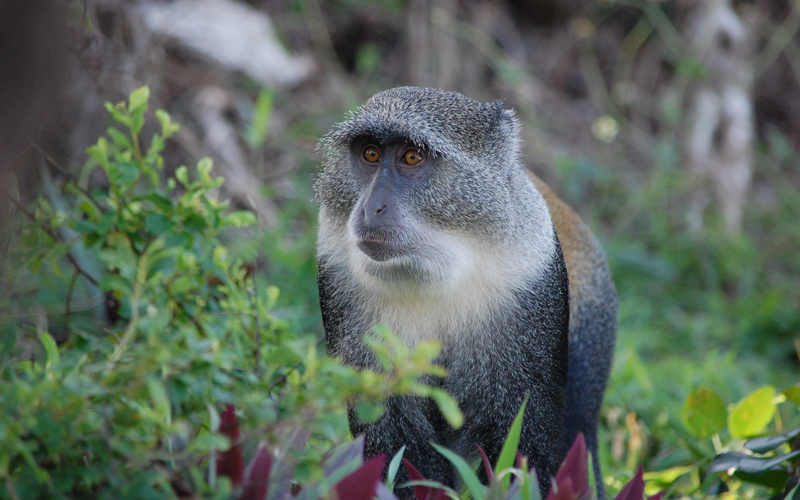
- Jozani Chwaka Bay National Park: Jozani Chwaka Bay National Park is not only home to the red colobus monkey but also to various bird species, butterflies, and indigenous flora. The park’s guided tours provide in-depth knowledge about the local wildlife and conservation efforts.
- Marine Life: The waters around Zanzibar are teeming with marine life, including colorful fish, dolphins, and sea turtles. Snorkeling and diving are the best ways to get up close and personal with these underwater wonders.
- Butterfly Centre: The Zanzibar Butterfly Centre, located near Jozani Forest, is a sanctuary for various butterfly species. Visitors can learn about the butterfly lifecycle and see these beautiful insects in a lush, natural environment.
Local Cuisine

- Popular Dishes: Zanzibari cuisine is a flavorful blend of African, Arab, and Indian influences. Must-try dishes include biryani, pilau rice, seafood curries, and urojo (Zanzibari soup). The island’s tropical fruits, such as mangoes and coconuts, are also a delight.
- Best Restaurants: For an authentic dining experience, head to Forodhani Gardens in Stone Town, where food stalls offer a variety of local dishes. For a more upscale experience, try The Rock Restaurant, located on a rock in the ocean near the Michamvi Peninsula.
- Street Food Markets: Street food markets are an excellent way to sample local flavors. Darajani Market in Stone Town is a bustling hub where you can find fresh produce, spices, and traditional snacks.
Accommodation Options
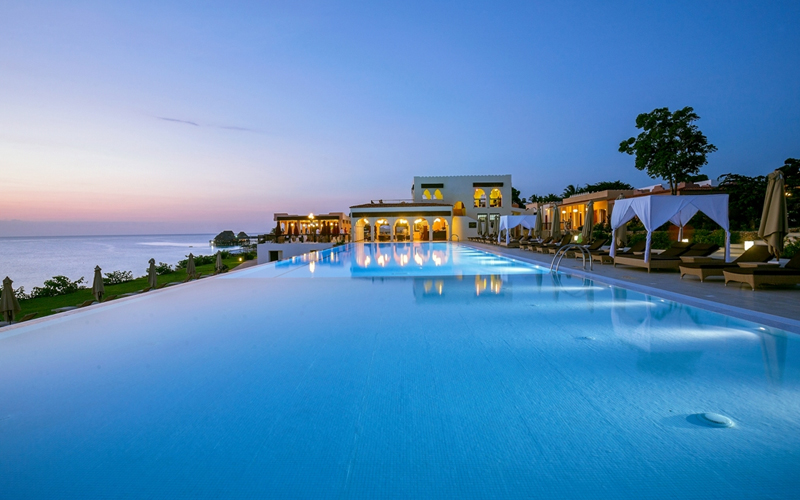
- Luxury Resorts: Zanzibar boasts several luxury resorts that offer world-class amenities and stunning views. Resorts like the Park Hyatt Zanzibar, Zuri Zanzibar, and Baraza Resort and Spa provide an opulent stay with top-notch service.
- Budget-Friendly Hotels: Travelers on a budget will find plenty of affordable accommodations. Hostels, guesthouses, and budget hotels are available throughout the island. Popular choices include Lost & Found Hostel in Stone Town and Paje by Night on the eastern coast.
- Unique Stays: For a unique experience, consider staying in an eco-lodge or a boutique hotel. Emerson Spice in Stone Town offers a historic setting with beautifully decorated rooms, while Chumbe Island Coral Park provides eco-friendly bungalows on a private island.
Travel Tips
- Health and Safety: Health and safety are paramount when traveling to Zanzibar. It’s advisable to take antimalarial medication and ensure your vaccinations are up-to-date. Always drink bottled water and practice good hygiene to avoid foodborne illnesses.
- Currency and Banking: The Tanzanian Shilling (TZS) is the local currency. ATMs are available in major towns, but it’s wise to carry cash, especially in remote areas. Credit cards are accepted in many places, but it’s best to confirm beforehand.
- Language and Communication: Swahili and English are the official languages of Zanzibar. While English is widely spoken in tourist areas, learning a few basic Swahili phrases can enhance your experience and help you connect with locals.
Sustainable Tourism
- Eco-friendly Practices: Many hotels and tour operators in Zanzibar are committed to sustainable tourism. They employ eco-friendly practices such as using solar power, reducing plastic waste, and supporting local conservation projects.
- Community-based Tourism: Community-based tourism initiatives allow visitors to experience local culture while directly benefiting the community. Programs like the Cultural Tourism Program in Jambiani offer guided tours that support local residents and promote cultural preservation.
Shopping and Souvenirs
- Local Markets: Exploring local markets is a must for any visitor. Markets like Darajani Market and Forodhani Gardens offer a variety of handmade crafts, jewelry, and textiles, perfect for souvenirs.
- Handicrafts: Zanzibari artisans are known for their skill in creating beautiful handicrafts. Look for items like hand-carved wooden boxes, Maasai beadwork, and Tinga Tinga paintings.
- Best Souvenirs to Buy: Popular souvenirs include spices, Kanga or Kitenge fabrics, and Tanzanite jewelry. These items make great gifts and mementos for your trip to Zanzibar.
Festivals and Events

- Sauti za Busara: Held annually in February, Sauti za Busara is one of East Africa’s biggest music festivals. It features a diverse lineup of artists from across the continent, celebrating African music and culture.
- Zanzibar International Film Festival: The Zanzibar International Film Festival (ZIFF) is a prestigious event showcasing films from Africa and the diaspora. It includes screenings, workshops, and cultural events, attracting filmmakers and film enthusiasts from around the world.
- Mwaka Kogwa: Mwaka Kogwa is a traditional Shirazi New Year festival celebrated in July. The festivities include singing, dancing, and playful mock fights, symbolizing the clearing away of past grievances and welcoming the new year.
Transportation Within Zanzibar
- Local Transport Options: Local transportation options in Zanzibar include dalla-dallas (shared minibusses), taxis, and bicycle rentals. Dala-Dalas are the most affordable but can be crowded. Taxis are convenient for short distances.
- Renting a Scooter: Renting a scooter is a popular way to explore the island independently. It provides flexibility and allows you to reach remote areas that might be inaccessible by other means.
- Bicycle Rentals: For a more eco-friendly option, consider renting a bicycle. Many hotels and guesthouses offer bike rentals, and cycling is a great way to explore Zanzibar’s scenic coastal roads and villages.
Hidden Gems
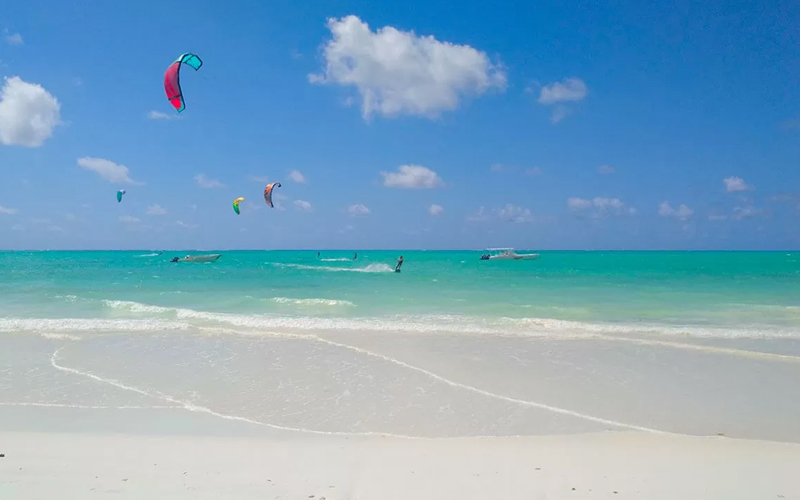
- Paje Beach: Paje Beach, located on the southeast coast, is a kite surfer’s paradise. Its shallow, turquoise waters and consistent winds make it ideal for the sport. The beach also offers a laid-back atmosphere with several beachfront bars and restaurants.
- Michamvi Peninsula: The Michamvi Peninsula, located on the eastern coast, is known for its secluded beaches and stunning sunsets. It’s a great place to escape the crowds and enjoy a peaceful retreat.
- Kizimkazi: Kizimkazi, located on the southern coast, is famous for its dolphin tours. The area is also home to the oldest mosque in East Africa, dating back to the 12th century.
Zanzibar is truly the Jewel of the Indian Ocean, offering a perfect blend of history, culture, and natural beauty. Whether you’re seeking relaxation on pristine beaches, exploring vibrant coral reefs, or immersing yourself in rich cultural heritage, Zanzibar has something for everyone. Pack your bags and embark on an unforgettable adventure in this tropical paradise.
FAQs
What is the best time to visit Zanzibar?
The best time to visit Zanzibar is during the dry seasons, from June to October and December to February. These periods offer pleasant weather, ideal for beach activities and exploring the island.
Do I need a visa to visit Zanzibar?
Yes, most travelers need a visa to enter Zanzibar. Upon arrival, you can obtain a visa or apply online through the Tanzania eVisa system. Be sure to check the latest requirements from your country’s Tanzanian embassy or consulate.
Is Zanzibar safe for tourists?
Zanzibar is generally safe for tourists, but it’s important to take common-sense precautions. Be aware of your surroundings, avoid displaying valuables, and follow local advice. In beach areas, always follow the guidance of lifeguards.
What are the must-try foods in Zanzibar?
Must-try foods in Zanzibar include biryani, pilau rice, seafood curries, and Urojo (Zanzibari soup). Don’t miss the fresh tropical fruits like mangoes and coconuts.
How many days should I spend in Zanzibar?
A stay of at least five to seven days is recommended to fully experience Zanzibar. This allows enough time to explore the beaches, and historical sites, and enjoy various activities.
For all the essential information you need about Tanzania safaris, explore the following topics on our page:
– Tanzania Safari Categories
– Tanzania Safari Checklist
– Tanzania Safari Cost
– Tanzania Safari FAQs
– Tanzania Safari Tipping
– Tanzania Safari Packages
– Tanzania Safari Guide
– Tanzania Safari Tours
– Honeymoon and Couple Safari
Visit our page for detailed information and tips to tailor your safari adventure to your specific interests and needs.”
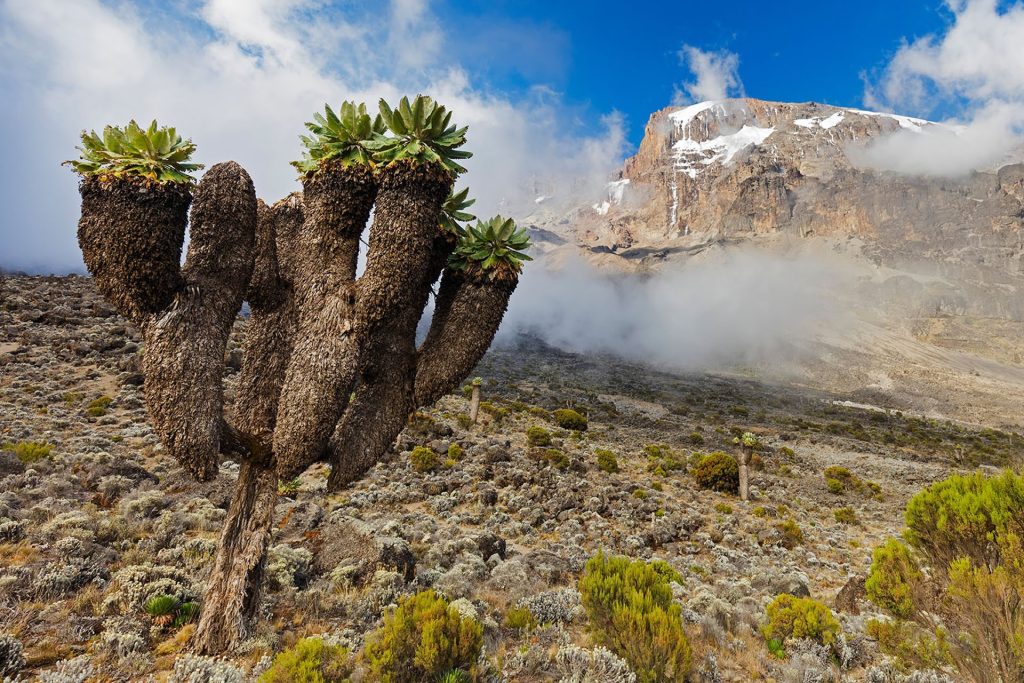

Kilimanjaro Climb
Book Hiking tours to Mount Kilimanjaro, The Roof of Africa, Best Prices Guarantee!
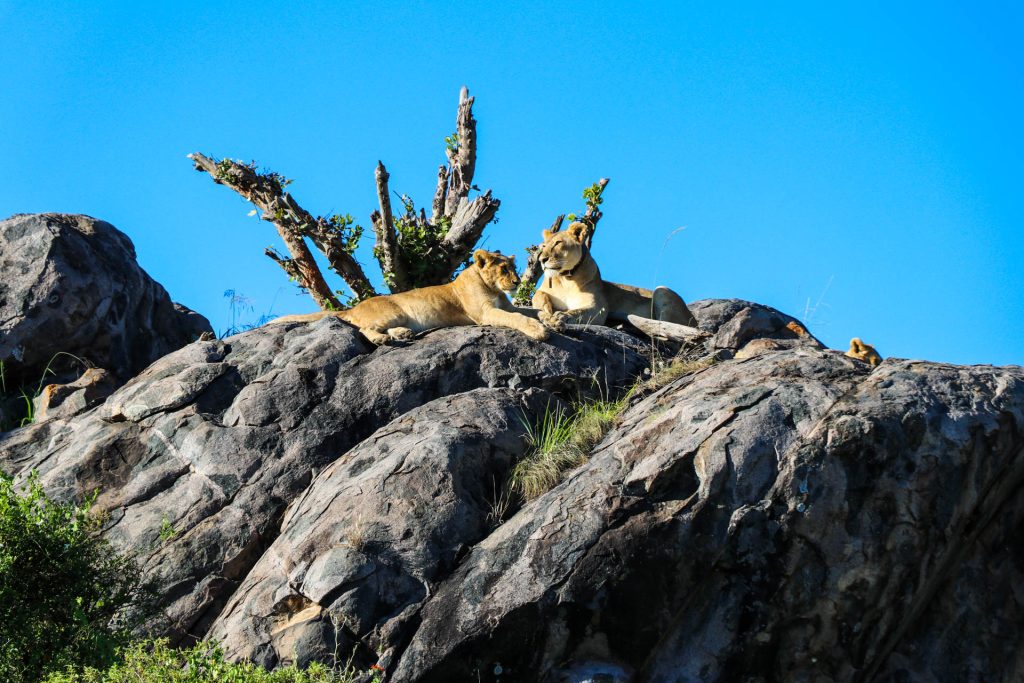

Tanzania Safari Vacations
Explore our Unforgettable Tanzania Budget, Mid-Range & Luxury Wildlife Safari.
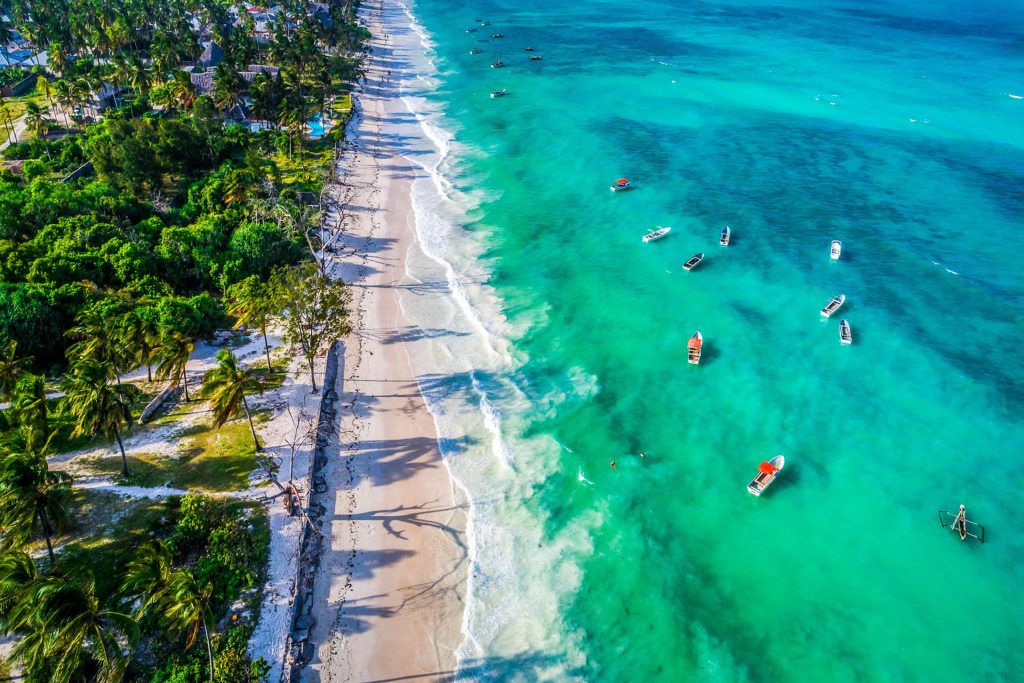

Beach Excursions
Visit Zanzibar Island and Coastal Tanzania for beach tours before and after a climb or safari.
ABOUT BOKER ADVENTURE…
Boker Adventure is a Tanzania Tours company located in Moshi town along the slope of Mount Kilimanjaro committed to offering local experiences such as Mount Kilimanjaro climbing experiences, Tanzania Wildlife Safari Experiences, Tanzania cultural tourism, bike tours, honeymoon, Air Ticketing and beach holidays. At Boker Adventures, we offer you a unique and comprehensive selection of Tanzania Private tours that are tailor made to suit your schedule and budget.
Please give us an opportunity to organize your African dream holiday!.






